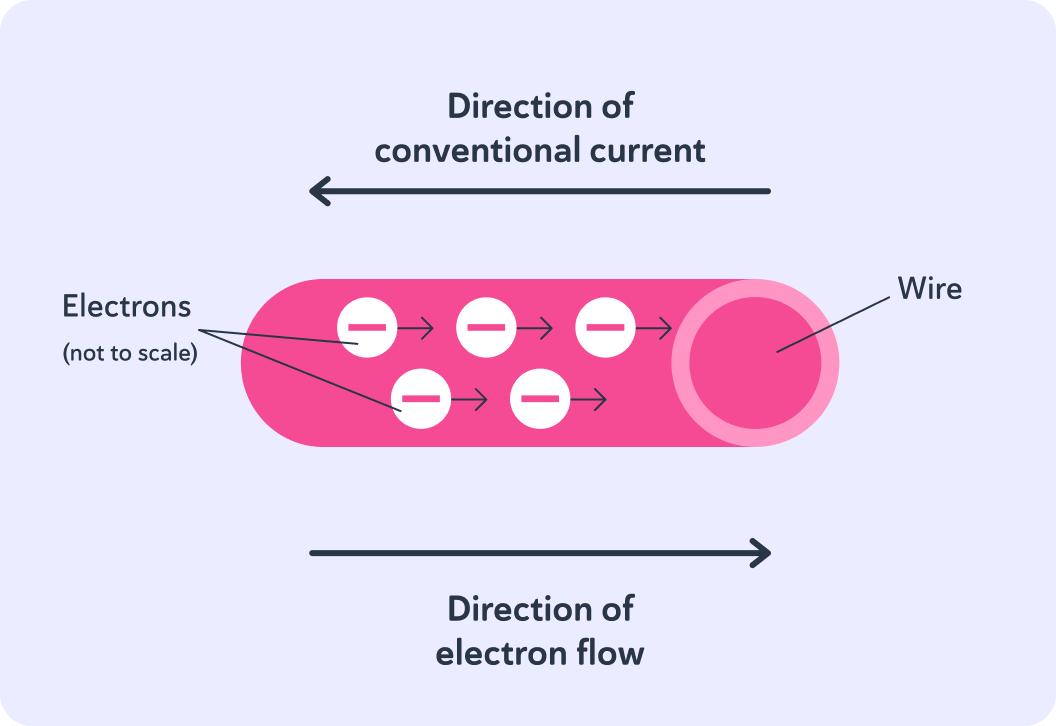YOU ARE LEARNING:
Conventional Current/Flow

Conventional Current/Flow
Before electrons were discovered, the direction of current was defined by the movement of positive charges. This is called conventional current. This is the opposite direction to the flow of electrons.
The charge of electrons is...

Which of these statements are true about electrons? Pick all the options you think are correct.

You can select multiple answers
If electrical current is the flow of electrons, which way will it flow?

To sum up, electrons are negatively charged particles which obey the laws of attraction. This means they flow away from a negative pole and towards a positive pole.
Have a good look at this image.
It the direction of electron movement compared to conventional current direction.

What can we say about the direction of the conventional current compared to the direction the electrons travel in?
A) They are opposite. B) They are the same.


Conventional current is given in the direction that ___________ would travel in.

Which of these do you think is the most likely reason for the direction of conventional current to be given as the direction a proton may travel in? Pick all the options you think are correct.

You can select multiple answers
The flow of electrons is what causes the current in a circuit. Nevertheless, when we talk about conventional current its direction is actually the opposite to the flow of electrons!
This can be a bit confusing, but it is because protons were the first subatomic particles to be discovered, and scientists believed that it was the movement of protons that caused the current to flow. Today, we know better, but we haven't changed the definition of conventional current.
So is it the protons moving which cause the electric current?

